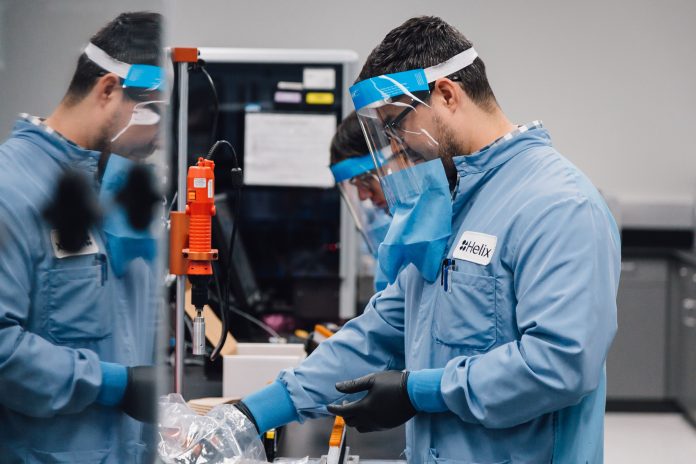
St. Luke’s University Health Network and population health company Helix announced they will partner in a population genomics research program that seeks to enroll 100,000 St. Luke’s patients in Pennsylvania and New Jersey over the next four years. The program will provide genetic testing services to the patients as a means of increasing the health system’s precision medicine capabilities.
“We have arrived at a historic turning point in the history of medicine—the ability to use information stored in patients’ DNA to improve the accuracy of certain treatments for the individual patient,” said Aldo Carmona, St. Luke’s senior vice president of Clinical Integration. “The St. Luke’s-Helix partnership will create a unique research program in our region that will greatly expand those capabilities to benefit more patients. We expect the results to allow St. Luke’s to gain important insights about our community, so that we can offer more precise and effective treatment, and design solutions that may prevent disease for years to come.”
St. Luke’s is a fully integrated health network comprising of 14 campuses, more than 300 outpatient sites with more than 19,000 employees serving 11 counties in the Lehigh Valley of Pennsylvania and western New Jersey. St. Luke’s is a teaching hospital and runs the only medical school in the Lehigh Valley via a partnership with Temple University.
For the research program, Helix will provide St. Luke’s with its end-to-end genomics testing and data platform under what it has dubbed its “Sequence Once, Query Often” model that allows for patients to provide a one-time sample for testing, and allows healthcare practitioners to tap the data for pertinent information in the future with the need for any additional testing. The intent is that the patient-specific data can be used for a breadth of both treatment and preventative care over the course of many years.
The 100,000 patients who participate in the program will also be provided with important findings of their tests regarding their potential risk for the development of significant hereditary conditions including heart diseases, such as familial hypercholesterolemia (FH), cancers driven by BRCA1 and BRCA2 mutations like breast cancer, ovarian cancer, and a form of colorectal cancer called Lynch syndrome. Participation in the program is voluntary and those who receive genetic testing results will be able to seek additional follow-up care with the health system or provider of their choosing.
“This research program will provide valuable insights about precision medicine and inform initiatives that may enable early detection of health conditions along with the selection of precise treatment options,” Carmona said.
James Lu, MD, PhD, CEO and co-founder of Helix added “Our partnership with St. Luke’s gives providers and patients access to vital genetic information that can impact not only their lives but their entire families, for generations to come.”
Helix, founded in 2015, has been pursuing partnerships similar to the one with St. Luke’s aimed at providing population-level whole-exome testing aimed at identifying diseases, such as those mentioned above. While the number of diseases may seem narrow, it is estimated that in total they affect nearly two million people in the U.S. today, providing a significant opportunity for health systems to decrease their total cost of care via early treatment and prevention. The company currently has similar partnerships with HealthPartners, Memorial Hermann, the Medical University of South Carolina and WellSpan Health.











